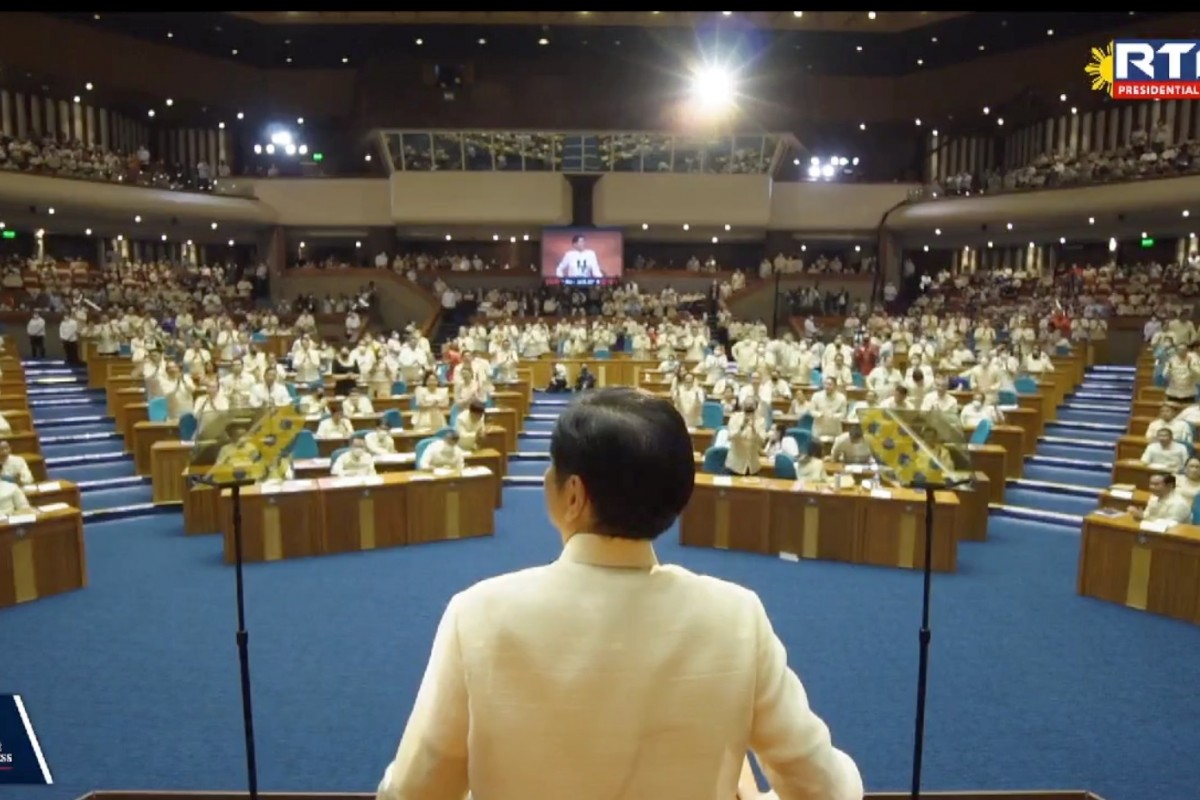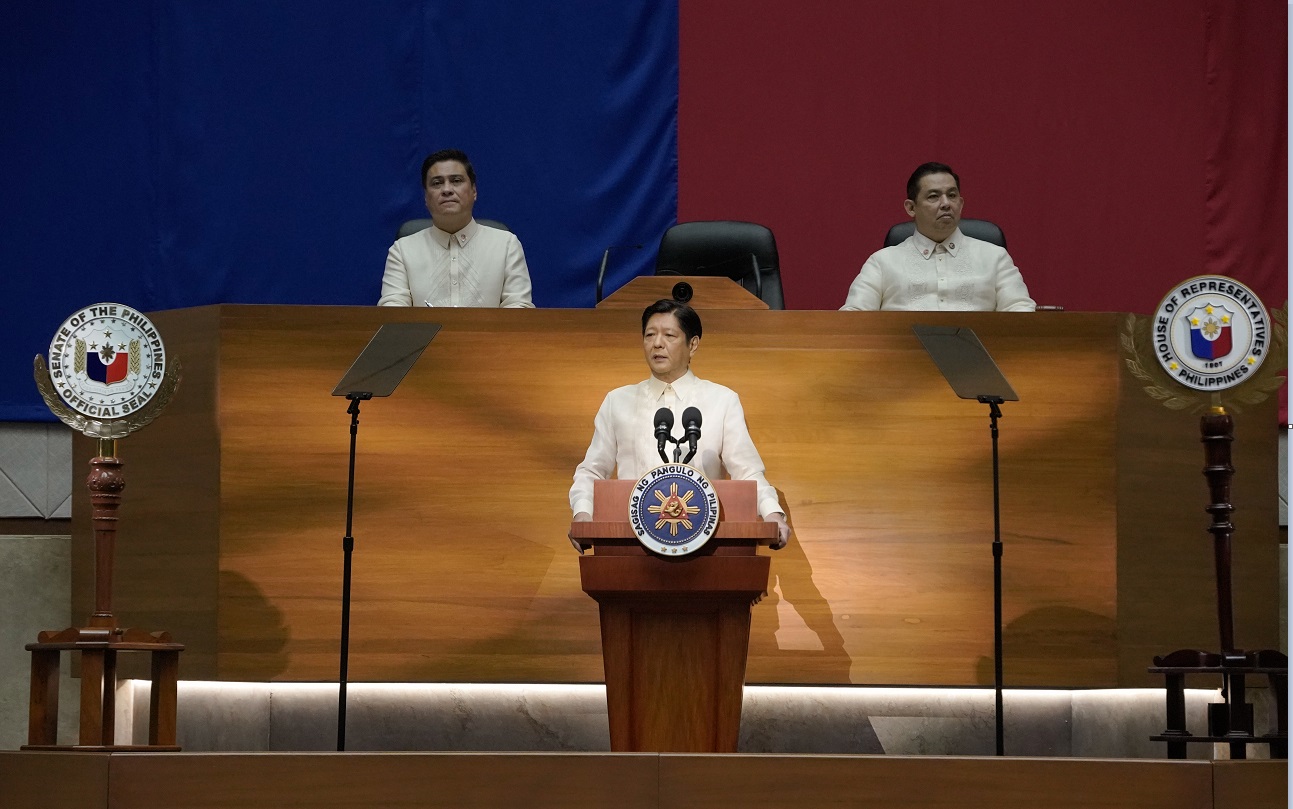QUEZON CITY, (PIA) -- President Ferdinand “Bongbong” Marcos Jr. called on the Congress to pass nineteen (19) priority bills of the administration in his first State of the Nation Address (SONA) on July 25, 2022.
“As I am here today addressing the legislature, allow me now to propose legislation that we would like you to pass in support of these programs,” Marcos Jr. said before the lawmakers at the plenary hall of the Batasang Pambansa in Quezon City.

National Government Rightsizing Program (NGRP)
Marcos proposed to lawmakers the National Government Rightsizing Program (NGRP) that seeks to enhance the government’s institutional capacity to perform its mandate and provide better services, while ensuring optimal and efficient use of resources.
“The rightsizing efforts will involve conducting a comprehensive strategic review of functions, programs, and projects that will cut across various agencies,” he said.
He added that the NGRP will entail a comprehensive strategic review of the functions, operations, organization, systems and processes of the different agencies, and massive and transformational initiatives in agencies concerned, such as mergers, consolidation, splitting, transfer, and even the abolition of some offices.
Budget Modernization Bill
According to Marcos, the Budget Modernization Bill seeks to institutionalize the Cash-based Budgeting System of former President Rodrigo Duterte’s Executive Order No. 91.
The proposed bill aims to “strengthen fiscal discipline in the allocation and use of budget resources by ensuring that every peso budgeted by the government would lead to the actual delivery of programs and projects.”
“The full implementation of the CBS is timely and vital as the government executes response and recovery plans post- pandemic,” he said.
Valuation Reform Bill and Passive Income and Financial Intermediary Taxation Act (PIFITA)
The President also urged lawmakers to pass two packages under the Comprehensive Tax Reform Program — Tax Package 3 which is the Valuation Reform Bill, and the Tax Package 4 on Passive Income and Financial Intermediary Taxation Act (PIFITA), respectively.
The Valuation Reform Bill provides for the establishment of real property values and valuation standards across the country and develops a Real Property Information System that provides for the database of all real property transactions and declarations in the country.
Meanwhile, the proposed PIFITA reforms the taxation of capital income and financial services by redesigning the financial sector taxation into simpler, fairer, more efficient and a revenue neutral tax system. It also adopts a regionally competitive tax system.
E-Government Act and E-Commerce Law
Marcos also seeks the enactment of the proposed E-Government Act, which establishes an E-Government Master Plan that covers all e-government services and processes.
He also wants Congress to pass the Internet Transaction Act or E-Commerce Law which establishes an effective regulation of commercial activities through the internet or electronic means to ensure that consumer rights and data privacy are protected, innovation is encouraged, fair advertising practices and competition are promoted, online transactions are secured, intellectual property rights are protected, and product standards and safety are observed.
Government Financial Institutions Unified Initiatives to Distressed Enterprises for Economic Recovery (GUIDE)
President Marcos said that this measure aims to provide financial assistance to distressed enterprises critical to economic recovery through programs and initiatives to be implemented by the Land Bank of the Philippines, the Development Bank of the Philippines and the Philippine Guarantee Corporation.
This addresses the liquidity or solvency problems of MSMEs and strategically important industries, to encourage their continued operations and maintain employment.
Establishment of a Medical Reserve Corps, National Disease Prevention Management Authority, Virology Institute of the Philippines (VIP), and the Department of Water Resources
Marcos also asked lawmakers to approve the establishment of a Medical Reserve Corps, National Disease Prevention Management Authority, creation of Virology Institute of the Philippines, and the Department of Water Resources.
Unified System of Separation, Retirement and Pension
This measure seeks to grant a monthly disability pension to military and uniformed personnel who retired by reasons of disability. This is in lieu of disability benefits being provided under existing laws.
E-Governance Act
The E-Governance Act promotes the use of Internet, Intranet and other ICT which is expected to provide opportunities for every Filipino.
National Land Use Act
President Marcos seeks to enact the National Land Use Act to provide a “rational and holistic management and development of the country’s land and water resources.”
National Defense Act
Seeking to amend the National Defense Act of 1935 and provide a change in the military structure of the Armed Forces of the Philippines, Marcos pushes for National Defense Act.
Mandatory Reserve Officers’ Training Corps (ROTC) and National Service Training Program (NSTP)
The President pursues the reinstitution of the ROTC as mandatory component of the senior high school programs in all public and private tertiary-level educational institutions to “motivate, train, organize, and mobilize the students for national defense preparedness, disaster preparedness and capacity building for risk-related situations.”
Enactment of an Enabling Law for the National Gas Industry
This enactment is expected to foster the development of the Midstream Natural Gas Industry in the country.
Amendments to the Electric Power Industry Reform Act or EPIRA (Republic Act No. 9136)
The President said these amendments aim to “improve the implementation of the law’s provisions and enhance its effectiveness to address high cost of electricity, alleged market collusion and insufficient power supply.”
The bill is also aiming to restructure the Energy Regulation Commission (ERC) to cultivate accountability and to improve the commission’s government system.
Amendments to the Build-Operate-Transfer (BOT) Law
According to the President, this will improve the implementation of the Public Private Partnership or PPP. The purposes of these amendments are as follows: (1) address the ambiguities in the existing law; (2) address the bottlenecks and challenges affecting the implementation of the PPP Program; and (3) foster a more competitive and enabling environment for PPPs.
President Marcos said it is not his intention to diminish the risks and challenges that the country is facing but he said he is also seeing “sunlight filtering through these dark clouds.”
The President is confident that the country will endure.
Ending his first SONA, the President said, “I know this in my mind, I know it in my heart. I know it in my very soul…the state of the nation is sound.” (EDelaCruz and ABancud - PIA CPSD)





